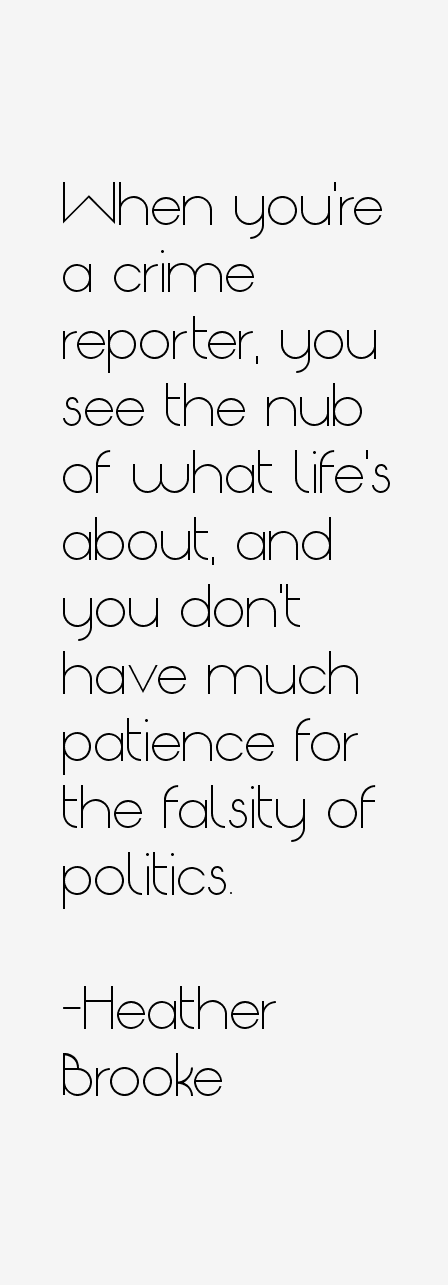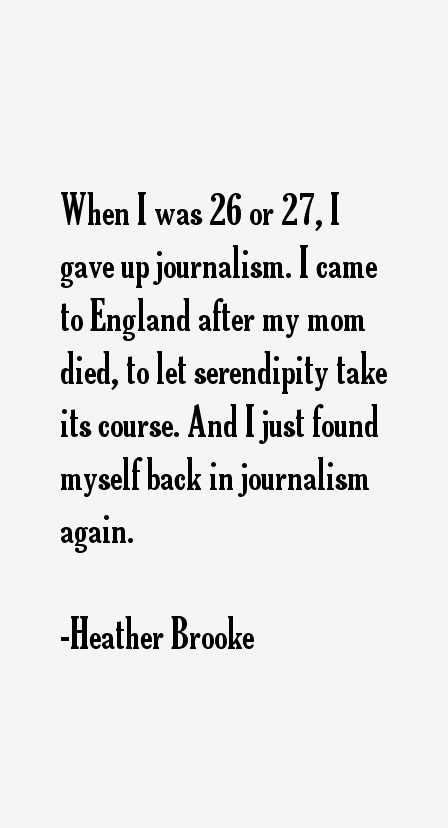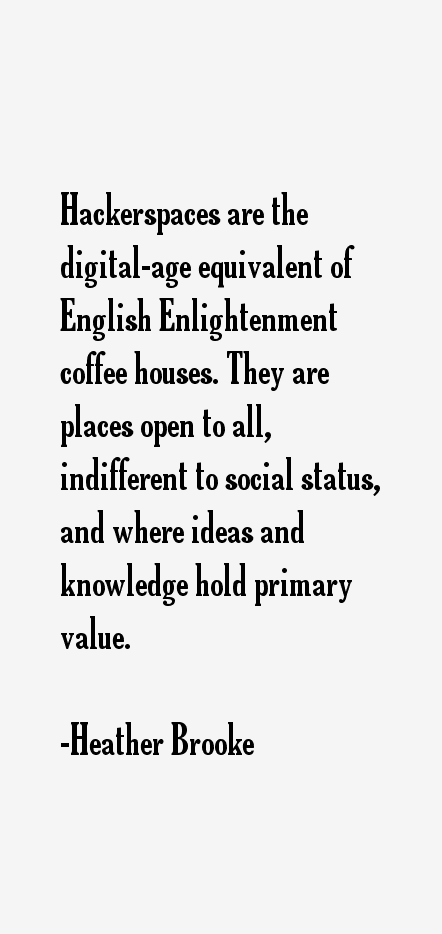Heather Brooke Quotes & Sayings (Page 2)
Heather Brooke quotes and sayings page 2 (journalist). Here's quote # 11 through 20 out of the 75 we have.

“Our printing press is the Internet. Our coffee houses are social networks.”
“The way the Establishment deals with people like me is to ignore them. When you become unignorable, they will try to smear you, and that's what I feared for a long time. Now I have somehow vaulted into this space where it's difficult for someone to smear me because it would look as though they were being vindictive and spiteful.”

“We are not naughty children, and the state is not our parent.”
“Say what you will about Americans, but one thing they are not is passive. The Bush administration may have pushed through the Patriot Act weeks after 11 September, but, as the American public got to grips with how the law was affecting their individual rights, their protests grew loud and angry.”

“When you're a crime reporter, you see the nub of what life's about, and you don't have much patience for the falsity of politics.”

“When I was 26 or 27, I gave up journalism. I came to England after my mom died, to let serendipity take its course. And I just found myself back in journalism again.”

“It seems appropriate that the author of '1984' was a British citizen. George Orwell must have seen how easily the great British public's lamb-like disposition toward its leaders could be exploited to create a police state.”

“Slightly embarrassing admission: Even when I was a kid, I used to have these little spy books, and I would, like, see what everybody was doing in my neighborhood and log it down.”

“Hackerspaces are the digital-age equivalent of English Enlightenment coffee houses. They are places open to all, indifferent to social status, and where ideas and knowledge hold primary value.”

“Leaks are not the problem; they are the symptom. They reveal a disconnect between what people want and need to know and what they actually do know. The greater the secrecy, the more likely a leak.”
Heather Brooke Quotes Rating
No Ratings Yet
Leave A Comment
























